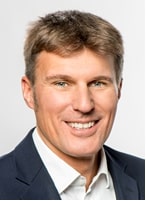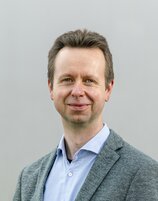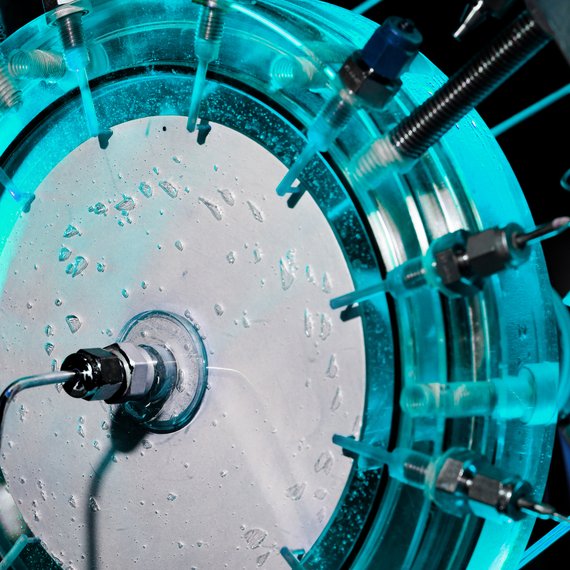Date
Thursday November 16, 2023 from 2:00 PM to 5:10 PMLocation
TU/e campus | filmzaal zwarte doosCo-organizer
Team EnergyPrice
Free
Energy Conversion and Storage
Date
Thursday 16 November 2023
Location
Filmzaal Zwarte Doos, TU/e campus
Organized by
Eindhoven Institute for Renewable Energy Systems (EIRES)
Introduction
Processes such as the photovoltaic generation of electric power, the storage in batteries or the conversion into chemical energy carriers such as hydrogen and synthetic fuels are currently either not efficient enough, require rare or toxic materials and catalysts, or are simply too expensive. New developments and technologies will be discussed from industry and academic perspective. Fundamental understanding is one of the key elements to enable large-scale energy storage and conversion in the context of renewable energy technologies. Multiscale modeling and supercomputers can bridge many orders of magnitude and study these processes from the detailed elementary molecular reactions up to entire reactors, fuel cells and (flow) batteries.
Program
14h00 - 14h30
Walk-in with coffee and tea
14h30 - 14h40
Word of welcome
Mark Boneschanscher | EIRES & Eindhoven University of Technology
14h40 - 15h20
Elestor’s flow battery
Large-scale, long-duration, scalable & affordable
Wiebrand Kout | Elestor B.V.
15h20 - 15h50
Break
15h50 - 16h30
Multiscale modeling of operando energy conversion systems
Karsten Reuter | Fritz Haber Institute of the Max Planck Society
16h30 - 17h10
Pathways towards a green, reliable and affordable energy system
David Smeulders | Eindhoven University of Technology
17h10 - 18h00
Drinks
Abstracts
Karsten Reuter | Director Fritz-Haber-Institut der Max-Planck-Gesellschaft
Data-Enhanced Multiscale Modelling of Operando Energy Conversion Systems
Emerging operando spectroscopies and microscopies reveal a highly dynamic behavior of interfaces in energy conversion systems. Insufficient insight and the concomitant inability to control or exploit the corresponding strong structural and compositional modifications centrally limits the development of performance catalysts, electrolyzers or batteries. Predictive-quality modeling and simulation is essentially unable to address the substantial, complex and continuous morphological transitions at such working interfaces. I will review this context from the perspective of first-principles based multiscale modeling, highlighting that the fusion with modern machine learning approaches is key to tackle the true complexity of working systems.

Karsten Reuter did his doctoral studies on theoretical surface physics in Erlangen, Madrid and Milwaukee. Following research experiences at the Fritz Haber Institute of the Max Planck Society (MPG) in Berlin and the FOM Institute in Amsterdam, he headed an independent MPG junior research group. From 2009 to 2020 he was Chair for Theoretical Chemistry at the Technical University of Munich (TUM), and has been appointed director of the Theory Department of the Fritz Haber Institute in 2020. He recently held visiting professorships at Stanford (2014), MIT (2018), and Imperial College London (2019), is a distinguished affiliated professor at TUM and honorary professor at the Free University and Humboldt University in Berlin.
Wiebrand Kout | Founder and CTO of Elestor B.V.
Elestor’s flow battery
Large-scale, long-duration, scalable & affordable
Wiebrand will first describe options and key metrics for long duration electricity storage (LDES). This is followed by an explanation of Elestor’s core technology and it’s integration with wind, solar and hydrogen production. An example of a clean energy U-curve trade-off analysis provides insight in the correct dimensioning of wind-solar-storage energy systems.

Wiebrand Kout (1977) founded Elestor in 2014 to fill the need for large scale, low cost electricity storage. Kout is responsible for the development of the company’s core technology, intellectual property and product planning. Wiebrand has pioneered three hydrogen electrochemical systems: the PEM fuel cell (at NedStack), the electrochemical hydrogen compressor (at HyET) and the Elestor hydrogen bromine flow battery. He’s convinced that “bidirectional powerplants” are the enabling technology for an affordable energy transition.
David Smeulders | Full Professor Energy Technology Eindhoven University of Technology
Pathways towards a green, reliable and affordable energy system
The so-called trilemma of the energy transition is that our energy system at the moment is not green, reliable and affordable at the same time. Using only sun and wind is not reliable, using only oil and gas is not green, and sun and wind with substantial back-up is expensive. There are however promising developments in energy storage that can potentially entail green security of supply at reasonable price.

David Smeulders holds an MSc in Aerospace Engineering from TUDelft and a PhD in Physics from TU/e. He worked for several years at the Dept. of Civil Engineering and Geoscience in Delft where he was also Director of the Geo-Technology Laboratory. Since 2010 he is full professor Energy Technology in Eindhoven at the Dept. of Mechanical Engineering. He is also Scientific Director of 4TU.Energy. He was member of the sounding board for the parliamentary inquiry committee ‘Gaswinning Groningen’.
About EnergyDays
EnergyDays is organized every quarter of the year and are open for anyone interested in the latest developments in societal energy issues. EnergyDays focusses on a specific aspect of the present energy and climate discussion. Different keynote speakers from academia and industry will present their views, solutions and outlooks on the topic. The motto of EnergyDays is to stimulate the audience to broaden their vision on energy and climate.
Organization committee
Follow EIRES
- LinkedIN and stay updated
- Twitter and discuss with us
- Visit EIRES and learn more
- Watch EIRES and get inspired
- Sign up and become a contact
